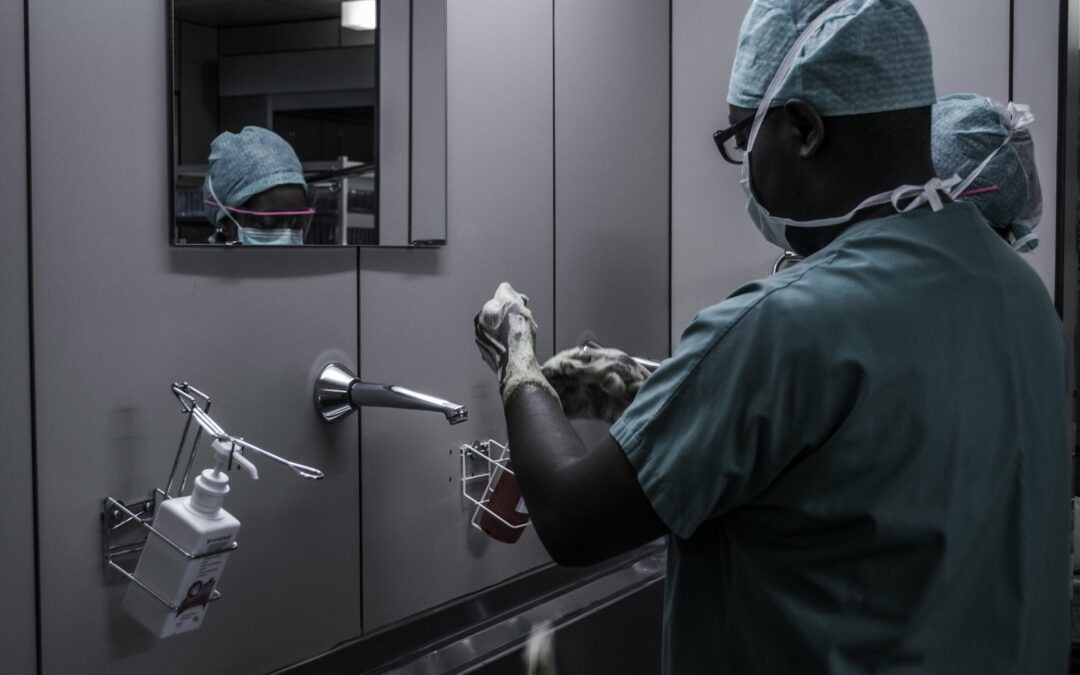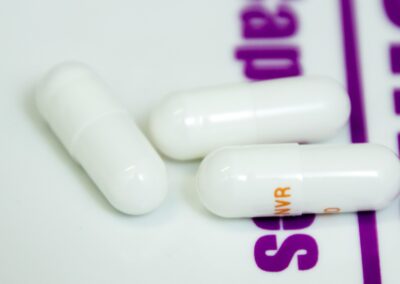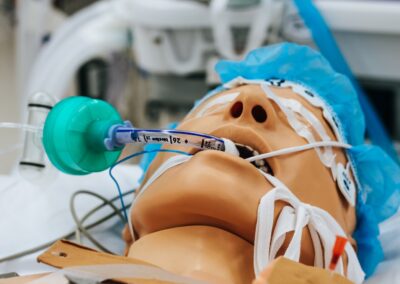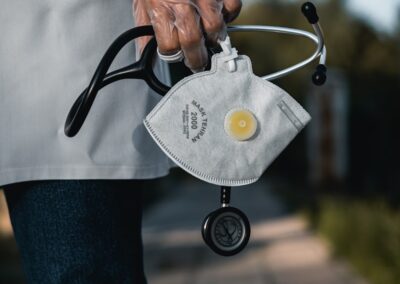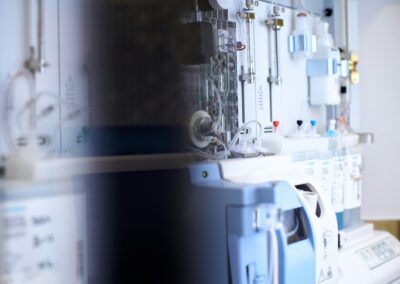Revolutionizing Patient-Specific Implants with Digital Twins
Transforming Medical Device Customization with Digital Twins
The integration of digital twins in medical device customization marks a significant advancement in personalized healthcare. Digital twins are virtual replicas of physical entities, allowing for precise simulations and analysis. In the realm of medical devices and implants, digital twins offer unparalleled opportunities for tailoring solutions to meet the specific needs of individual patients. This technology enables a more personalized approach to medical device design, enhancing both the efficacy and safety of implants.
In the context of rapidly developing healthcare markets like Saudi Arabia and the UAE, the adoption of digital twins is paving the way for innovative medical solutions. By leveraging digital twins, healthcare providers can create highly accurate virtual models of patients’ anatomy, which can then be used to design customized implants and devices. This approach not only improves patient outcomes but also aligns with the region’s commitment to advancing medical technology and healthcare services.
For business executives and entrepreneurs in the healthcare sector, understanding the potential of digital twins is crucial for staying ahead of the curve. The ability to customize medical devices to individual patient specifications represents a significant leap forward in medical technology, promising enhanced precision, reduced surgical risks, and improved recovery times. Embracing digital twins can provide a competitive edge in a rapidly evolving industry.
Enhancing Precision and Patient Outcomes
One of the most compelling advantages of digital twins in medical device customization is their ability to enhance precision and patient outcomes. By creating a virtual model of a patient’s unique anatomy, medical professionals can design implants and devices that fit perfectly, reducing the likelihood of complications and the need for revisions. This level of customization is particularly beneficial in complex cases where standard devices may not be suitable.
In regions such as Saudi Arabia and the UAE, where there is a growing emphasis on high-quality healthcare solutions, digital twins are becoming a game-changer. These virtual models enable detailed simulations of how an implant will interact with the patient’s body, allowing for thorough testing and optimization before the actual device is produced. This proactive approach ensures that the final product meets the highest standards of safety and effectiveness, leading to better overall patient outcomes.
Moreover, digital twins facilitate a more personalized approach to treatment planning. By analyzing the virtual model, healthcare providers can tailor interventions to the specific needs of each patient, improving the precision of surgical procedures and the overall success rate of medical treatments. This level of customization not only enhances patient satisfaction but also contributes to the overall advancement of healthcare practices.
Driving Innovation and Efficiency in Healthcare
The use of digital twins in medical device customization is driving significant innovation and efficiency in the healthcare sector. By leveraging this technology, manufacturers can streamline the design and production process of medical devices, reducing development time and costs. Digital twins enable rapid prototyping and testing of various design options, allowing for more efficient and cost-effective production of customized implants.
In Saudi Arabia and the UAE, where there is a strong focus on technological advancement and improving healthcare infrastructure, digital twins are playing a crucial role in achieving these goals. The ability to create and test virtual models of medical devices before actual production aligns with the region’s commitment to integrating cutting-edge technologies into healthcare practices. This approach not only supports the development of innovative solutions but also enhances the efficiency of healthcare delivery.
Furthermore, digital twins foster collaboration between healthcare providers, manufacturers, and researchers. By sharing virtual models and data, stakeholders can work together to advance medical technology and develop new solutions that address specific patient needs. This collaborative approach accelerates innovation and supports the continuous improvement of medical devices and treatments.
Challenges and Future Prospects
Despite the promising potential of digital twins in medical device customization, several challenges need to be addressed to fully realize their benefits. One major challenge is ensuring the accuracy and reliability of virtual models. High-quality data and advanced simulation techniques are essential for creating realistic and effective digital twins that accurately represent patients’ anatomical structures.
Additionally, integrating digital twins with existing healthcare systems and workflows requires careful planning and investment. As the technology evolves, healthcare providers and manufacturers must work together to develop standards and protocols for using digital twins in medical device design and production. Addressing these challenges will be crucial for maximizing the impact of digital twins on personalized healthcare.
Looking ahead, the future of digital twins in medical device customization holds exciting possibilities. Advancements in data analytics, machine learning, and simulation technology will continue to enhance the capabilities of digital twins, enabling even greater levels of personalization and precision. As the healthcare industry evolves, digital twins will play a pivotal role in shaping the future of medical devices and improving patient care.
Conclusion: Embracing Digital Twins for Personalized Healthcare Success
The application of digital twins in medical device customization represents a transformative advancement in personalized healthcare. By leveraging virtual models to design and test patient-specific implants and devices, healthcare providers can enhance precision, improve patient outcomes, and drive innovation in the medical field. For business executives and entrepreneurs in the healthcare sector, embracing digital twin technology is essential for staying competitive and contributing to the advancement of medical technology.
As digital twins continue to evolve and integrate with other cutting-edge technologies, their impact on healthcare will only grow. By investing in and adopting digital twin technology, stakeholders can support the development of personalized and effective medical solutions, paving the way for a new era of healthcare innovation and success.
—
#DigitalTwins #MedicalDeviceCustomization #PatientSpecificImplants #SaudiArabia #UAE #Riyadh #Dubai #ArtificialIntelligence #Blockchain #TheMetaverse #ExecutiveCoachingServices #GenerativeArtificialIntelligence #ModernTechnology #BusinessSuccess #LeadershipSkills #ProjectManagement

